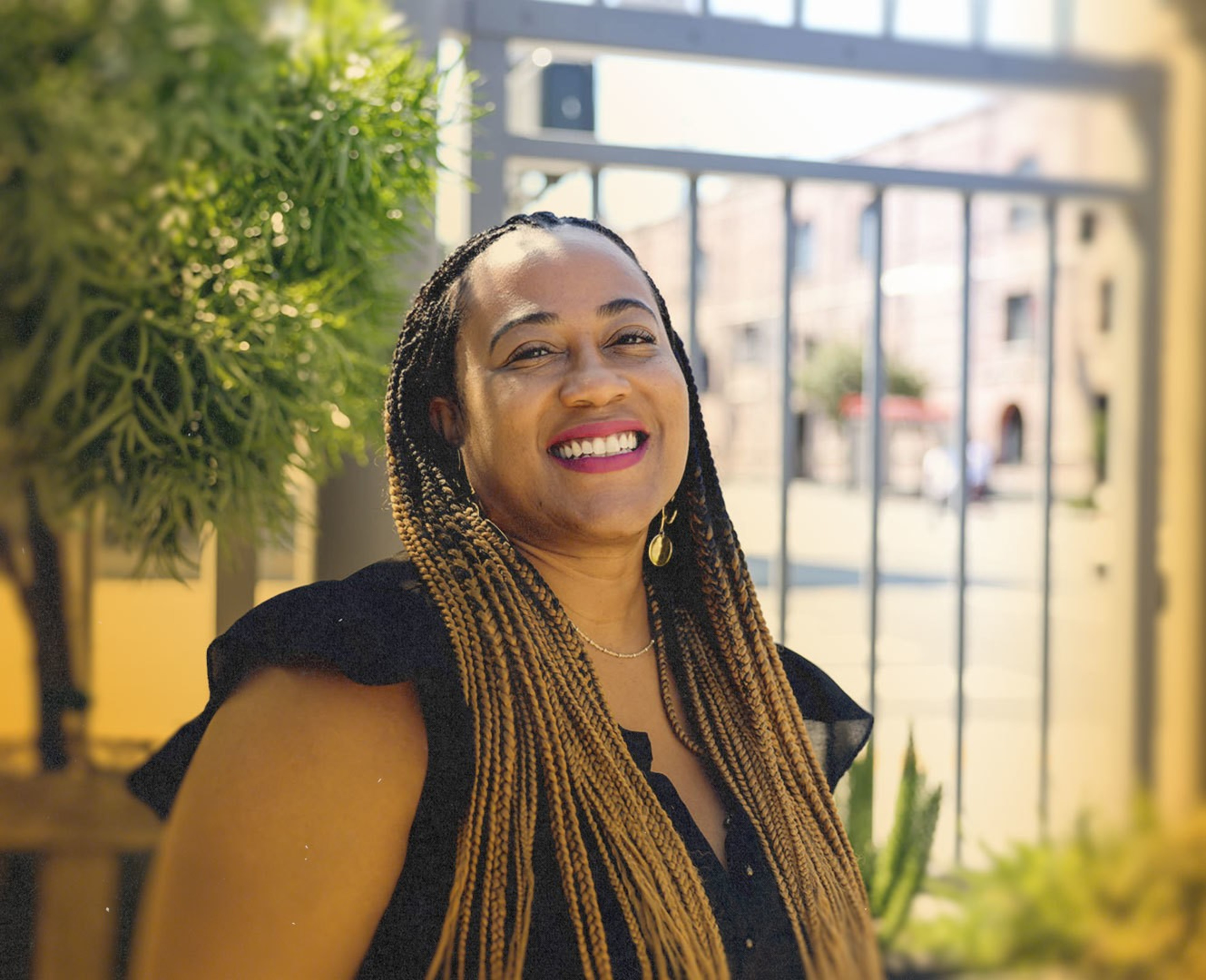Skip to main content








Know Your Neighbors
Brittney Doyle
Helps San Francisco's Elders Keep the Spark AliveWritten by Meaghan Mitchell
Published Aug. 21, 2022 • 11:10am
In a scene that will be familiar to many who learned about the birds and the bees in a public school sex ed course, Brittney Doyle begins by pulling out a banana and a condom. “Squeeze the tip,” she says. “But make sure your condom is right side up, then roll it down until you reach the end.”
Here comes the twist: The class she is addressing is not composed of hormone-driven teenagers. Instead, Doyle’s audience is made up of folks aged 65 and older.
“When it comes to sex, I think the biggest misconception about the aging community is that they don’t have it,” Doyle says.
Since 2016, Doyle has been the CEO of WISE Health, an organization that focuses on breaking down barriers to health care access in underserved communities throughout San Francisco. She regularly makes the rounds at housing sites, homeless shelters, community centers and churches—helping people connect with a variety of resources, including nutrition programs, free health services and even teaching safe sex practices to seniors.
For the past couple of years, Doyle’s demographic has been what she calls the “aging community.” Of all the programs Doyle has managed, sex education within this cohort has been the most popular.
“These classes are intense, because you are dealing with a population of people who have been married for 30 to 40 years, and many of them are widowed and entering the dating game,” Doyle says.
She often comes across seniors who don’t know how to use condoms or are not well versed in understanding the various sexually transmitted diseases and their impact. “They don’t recognize different symptoms within their body and how to go about getting themselves checked,” Doyle explains.
Over the years, STD diagnoses like HIV have grown within the aging community because adults in their golden years are less likely to get tested. According to the Centers for Disease Control and Prevention, over half of the people in the United States diagnosed with HIV were aged 50 and older. While those rates decreased to 10% in 2020, data from AidsVU shows that in San Francisco 35.8% of people living with HIV are 60 years old and over. “We haven’t received current data yet, but I would imagine those numbers have increased, especially over the course of the pandemic,” Doyle said.
Doyle said she feels like a completely new population of San Francisco folks are dating and reinitiating their sexual lives. So she tailors her workshops to address seniors’ sexual health throughout the city. “Of course, we want these classes to be fun and exciting, but we also know we aren’t talking to high schoolers,” Doyle says.
WISE Health facilitates workshops like “Sex After 60,” where Doyle meets weekly with seniors on Fridays for six weeks to discuss a different subject around sex. The topics cover everything from HIV prevention to the optimum positions for a partner who suffers from physical disabilities or chronic pain, as well as how to be intimate without having sex, which many older individuals appreciate for a variety of reasons; in addition to the aforementioned physical limitations many of her clients experience, others are devoutly religious.
Open dialogue is also a significant part of Doyle’s work. She occasionally hosts events where she invites people to talk about love and past experiences, whether joyous or painful. It’s how she’s built trust within the community.
“With aging, the need for intimacy doesn’t go away,” Doyle says. “At 70 and 80, people need and want to feel needed. People want to touch and be held… and really, it’s about how affection is given and received that changes with time.”
Photos by Juliana Yamada/The Standard

Special powers
Empathy.
Arch enemies
Willful ignorance (racists!)
Weaknesses
Food.
Lineage
I’m a Southern belle from my heritage to my heart.
Current mission
Advance health equity in the Black community.
‘With aging, the need for intimacy doesn't go away. At 70 and 80, people need and want to feel needed.’
